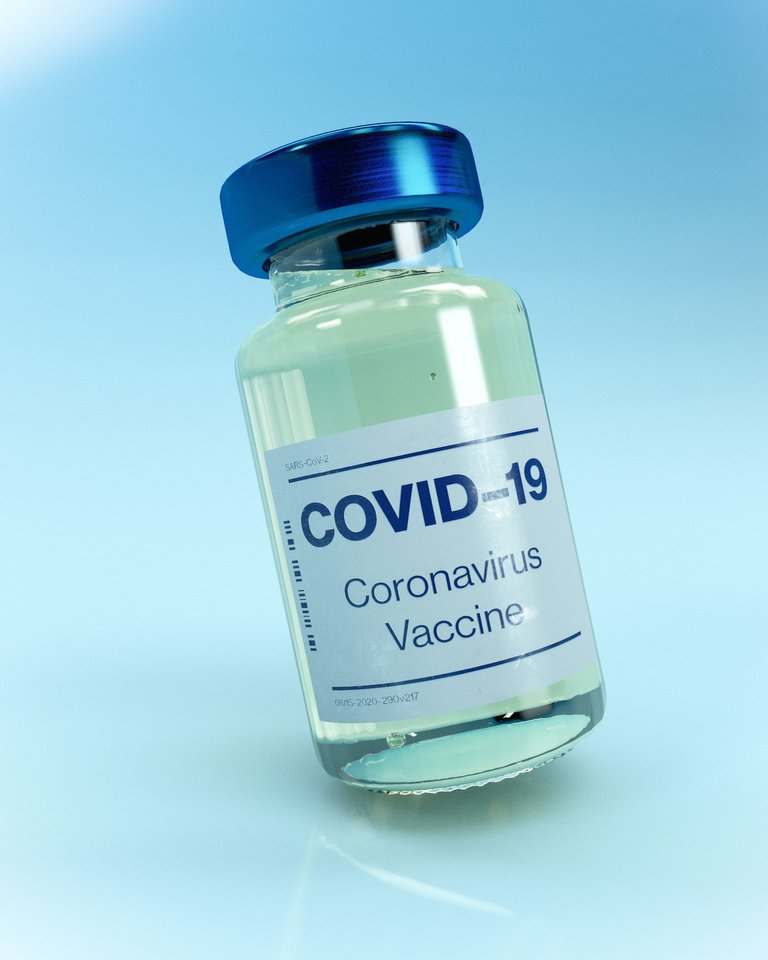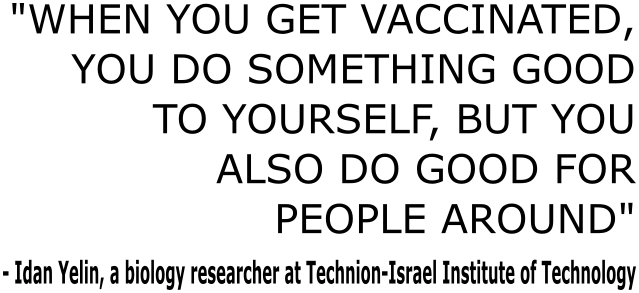
With the Pandemic still at its highest in terms of number, this is a very important topic.
With newspapers and media outlets with headlines talking about having covid-19 after vaccination, it in a way can bring fear into people's minds. These headlines should not be a big shock in any way.
What is known about the vaccines from medical data is that they are not 100% effective in preventing illness. Pfizer/BioNtech vaccine is effective at preventing 95% of Covid cases, and other vaccines like Moderna, Johnson & Johnson are also not 100% efficacious and have efficacies of 94% and about 69% respectively.
It still a shock to some even though clinical trials were clear about these chances of having the virus after the vaccine. You could still be sick without any signs and symptoms (asymptomatically) or actually have signs and symptoms of the disease.

There reports from the Center for Disease Control on CNN and from the Wall Street Journal that about 77 million people in the US have been vaccinated, 5,000 new cases have sprung up. This represents about 0.0075% of those vaccinated. It brought about 396 hospital admissions and killed 74 people. Clinical trials also showed that hospital admissions were 0% meaning they were 100% efficacious in preventing hospital admissions.
Nothing is 100% especially in medicine where there are a lot of human factors that come into play, if millions of people receive a vaccine there will be very rare occurrences happening alongside what was typically expected. The reason we have these infections even after the vaccine is due to the fact that the pandemic is not yet over and widespread infection in some communities still take place.
𝙒𝙝𝙮 𝙙𝙤 𝙥𝙚𝙤𝙥𝙡𝙚 𝙜𝙚𝙩 𝙨𝙞𝙘𝙠 𝙖𝙛𝙩𝙚𝙧 𝙫𝙖𝙘𝙘𝙞𝙣𝙖𝙩𝙞𝙤𝙣?
Before going into understanding the answer to this question, it is important to know the difference between getting a disease and getting infected. If you are infected by a microorganism, then you might not show symptoms simply by being infected, but the organism or the changes it makes in the body can be tested for. For example, testing positive for the virus would mean that one is infected. Having a disease, typically means that such a person has signs and symptoms of the disease.
What is known is that vaccines are not only effective at preventing disease, they also prevent infections. When 3,950 health workers were studied after having the vaccine, it was found that the mRNA vaccines like Moderna can prevent 90% of infections.
The CDC says in their early publishings Johnson & Johnson might prevent symptomatic infections.
What all this means is that the vaccine is our best bet at putting this pandemic to rest. But even with these chances as low as they are, people will get infected and also have the signs and symptoms of the disease.
Why this happens to be the case is not well known, but it varies between people. The immunity provided by the vaccine varies between individuals.
It is similar to how some people will have the side effects of the vaccine but others may not have them or just show some of those side effects.
But there are also some things that scientists suspect might make it more likely.
So far there are only suspicions of what might make it more likely, like the quantity of the coronavirus a person is exposed to. This is more likely to happen when someone who is sick with the virus lives with you.
Another factor is when a person is already immunocompromised, and lives with HIV or diabetes mellitus or has some cancerous disease, and is on medication.
Just like age plays a role in infection in a normal case, age can also make a person more likely to be infected after vaccination. What has been found by a study done in Israel showed that those who are older than 80 had less effective vaccination when done with Pfizer/BioNtech.
Sleep generally increases the quality of life of individuals and reduces stress. These are less common factors that scientists suspect may be at play.
Vaccines also take about 2 weeks to be fully effective, so, interaction with the other factors can increase the chances of infections. During the year periods, say the first week a person would be more likely to be infected.
The upside about all this is that when break-through infections occur, as they are called, they are not as terrible as what you would have in a non-vaccinated person. This information is gotten from studies done on many thousands of people. This study found that 100% of those vaccinated were not admitted to the hospital and did not die from the disease. As far as studies go, this is a good result.
A study done in Israel including 5,000 people found that the amount of the virus found in those who were not vaccinated was less than those who were vaccinated. The transmission by people who are vaccinated is also less and the disease is usually not as severe when compared to those who were not vaccinated.
The study done in Israel made use of the Pfizer/BioNtech vaccine because this is the vaccine that is currently available in Isreal. It is only reasonable to think that the same results would be gotten from other vaccines such as Moderna.
𝙒𝙝𝙖𝙩'𝙨 𝙩𝙝𝙚 𝙙𝙖𝙩𝙖 𝙤𝙣 𝙑𝙖𝙧𝙞𝙖𝙣𝙩𝙨?
So far no studies have been published but the Israelis working with Pfizer/BioNtech vaccine found that the first dose of this vaccine made people more likely to be affected by the B. 1351 variant and B.1.1.7 variant than the initial un-mutated virus.
It is possible that the other vaccines are not as efficacious as Pfizer/BioNtech against variants.
The last message still remains the same, if you want to be protected from the un-mutated strain or other variants then full vaccination is necessary.
𝙍𝙚𝙛𝙚𝙧𝙚𝙣𝙘𝙚𝙨


All images used are copyright free
Vancouver Style was used for References. Written by @gamsam - a Medical Student



For me I don’t care if you’re pro or a against it as long as you have the choice! If you want something in your body by all means but if you don’t you should have that righr and it’s sad to see people calling to take away the freedom of choice of your body
I do think these vaccine topic is so hotly contested you can’t have an open debate about it or question things people are so emotional about it
I think this rush to see it as a silver bullet is the people it may work for soek it may not work for others it may work for some strains it may not work for others and until the data is out we won’t know
The issue of the COVID vaccine has generated a lot of controversy due to well obvious reasons. Like you said, until concrete data is out, we really wouldn't have a definite say.
Though there are some critical comments here in the comments, i believe that the information provided here is of a great value to the readers on hive blockchain. Some of the things are beyond understanding of the layman but are explained nicely
Well, talks about the COVID vaccine is bound to draw in a lot of controversies. Thank you
Lo de colocarse las vacunas ,es algo muy personal ,cada quien decide colocarla o no
En mi opinión este tema Vacunas,es todavía una face experimental ,el tiempo dura, si sirve o no.
Time and data will tell eventually
Hard pass. Surprised that a medical student has no mention of other ways to treat this illness. There are plenty of proven alternative treatments and therapeutics. There is also the fact that living healthy, taking the proper vitamins and supplements can increase your body's natural immune system. Get plenty of sunshine, exercise, and sleep. The vaccine is not the only way to protect yourself.
It is of course a matter of one's personal choice. I am also sure I made mention of other treatment option in other posts. This post as you can see was made to explain the reason why some persons may get sick after vaccination.
i feel good (biontech)
Congratulations @gamsam! You have completed the following achievement on the Hive blockchain and have been rewarded with new badge(s) :
Your next target is to reach 43000 upvotes.
You can view your badges on your board and compare yourself to others in the Ranking
If you no longer want to receive notifications, reply to this comment with the word
STOP